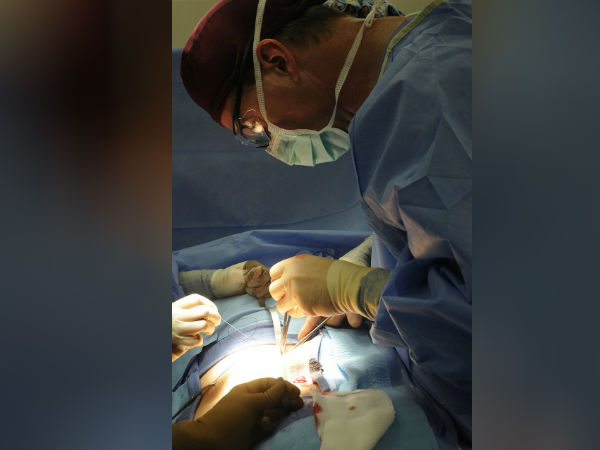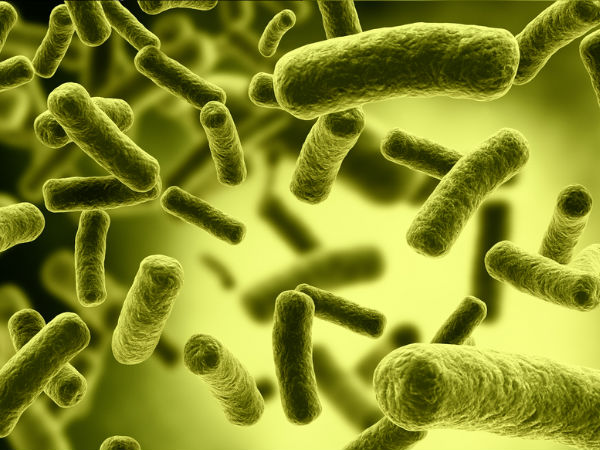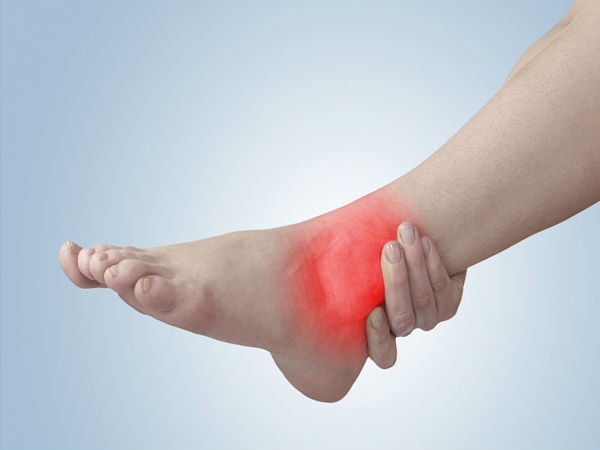Just In
- 3 hrs ago

- 7 hrs ago

- 10 hrs ago

- 12 hrs ago

Don't Miss
- Movies
 Why Abhishek Malhan Unfollowed Bigg Boss OTT 2 Buddy Jiya Shankar? Fukra Insaan Reveals TRUTH
Why Abhishek Malhan Unfollowed Bigg Boss OTT 2 Buddy Jiya Shankar? Fukra Insaan Reveals TRUTH - Finance
 1:1 Bonus, 16.50/Share Dividend: NBFC To Recommend Dividend, Buy For TP Rs 900: Motilal Oswal
1:1 Bonus, 16.50/Share Dividend: NBFC To Recommend Dividend, Buy For TP Rs 900: Motilal Oswal - Sports
 Most Runs in IPL 2024, Orange Cap Holder: Top 10 Highest Run Scorers And Team-wise Top 5 Batters On April 18
Most Runs in IPL 2024, Orange Cap Holder: Top 10 Highest Run Scorers And Team-wise Top 5 Batters On April 18 - News
 Social Media Users Laud Gujarat Titans' Fangirl, Call Her Ana de Armas' Lookalike
Social Media Users Laud Gujarat Titans' Fangirl, Call Her Ana de Armas' Lookalike - Technology
 Nothing Ear, Ear a With ANC, Up to 42.5 Hours of Battery Launched; Check Price and Availability
Nothing Ear, Ear a With ANC, Up to 42.5 Hours of Battery Launched; Check Price and Availability - Education
 PSEB Class 10 Toppers' List 2024, Check the Ranks of Toppers
PSEB Class 10 Toppers' List 2024, Check the Ranks of Toppers - Automobiles
 All About Electronic Stability Control ESC: Working & Advantages
All About Electronic Stability Control ESC: Working & Advantages - Travel
Telangana's Waterfall: A Serene Escape Into Nature's Marvels
How Can You Tell If Your Stitches Are Infected
A surgical cut would take its own due course of time to heal. However, while you are resting at home post a surgical procedure, it is essential that you keep a check on whether the cut where the stitch has been made is on the right track of healing or not. In case there are any symptoms of an infection occurring then immediate medical attention might be required so that complications do not arise.
What Are The Signs Of An Infection?
Mostly an infected stitch would begin with the general signs of an infection approaching - feeling of tiredness and an overall feeling of being unwell. Signs of not feeling good or having flu could indicate a possible infection of a stitch.

The following are some of the common signs of an infected stitch:
•
Redness
and
swelling
in
the
area
of
the
stitches.
The
skin
around
the
infection
might
be
hot
to
touch.
•
Fever
that
accompanies
other
flu-like
signs.
•
Pain
and
tenderness
in
the
infected
stitch
region.
•
Swollen
lymph
nodes.
•
Blood
or
pus
that
leaks
out
from
the
stitches.
There
could
be
a
foul
odour
as
well.
This
is
an
obvious
symptom
of
an
infected
stitch.

Possible Causes Of Infection In The Sutures
The stitches that are placed after skin has been cut post a surgical barrier can act as a wound that allows the germs to enter the body. This makes you prone to the development of an infection.
Bacteria cause the infection of stitches. The most common types of bacteria that cause the wound to get infected belong to the following species: Streptococcus, Pseudomonas and Staphylococcus.
The following factors could also increase the risk of developing an infected stitch:
•
If
the
wound
has
not
been
cleaned
properly
prior
to
the
stitches
•
If
the
object
causing
the
wound
had
germs
•
If
you
belong
to
the
elderly
category
and
are
overweight
•
If
the
surgical
procedure
has
lasted
more
than
two
hours
•
If
you
have
diabetes
•
If
you
smoke
•
If
sanitization
was
not
taken
care
of
prior
to
the
surgical
procedure
•
If
the
wound
is
extremely
deep
•
If
you
have
a
weak
immune
system

What Happens If Stitches Get Infected?
Apart
from
the
extreme
pain
and
swelling,
when
infected
stitches
are
left
untreated,
they
could
lead
to
severe
complications.
If
not
treated,
infected
stitches
can
cause
the
infection
to
spread
to
other
parts
of
your
skin
and
body.
There
could
be
complications
such
as
cellulitis,
sepsis
or
abscess
formation.

How To Treat Infected Stitches?
You should see a doctor immediately once you start seeing any of the symptoms of infected stitches.
The treatment of the infected stitches would ideally begin with your doctor taking a sample of the discharge from the infected site. This is done to examine if bacteria has been causing infection in the region of the stitch.
If
the
presence
of
bacterial
infection
is
confirmed,
then
your
doctor
would
proceed
to
perform
an
antibiotic
susceptibility
testing.
This
is
done
to
determine
as
to
which
antibiotic
would
be
most
effective
in
treating
the
infection
of
the
stitch.
In
case
a
fungal
infection
is
suspected,
then
other
tests
including
cultural
techniques
would
be
done.
In case of mild infections that are localized, an antibiotic cream for local application could cure the infection in a few days time. However, if the infection is quite severe or has affected a large area, then your doctor would prescribe an oral antibiotic. The antibiotic that should be prescribed is determined with the help of the antibiotic susceptibility testing.
Intravenous antibiotics might be required for very severe infections. If the infection does not seem to heal, then the dead or dying tissue would need to be removed through a surgical procedure.

How To Prevent Stitches From Getting Infected?
You can follow the below-mentioned steps to prevent a stitch/wound from getting infected:
•
Keep
the
stitches
clean.
Usually
a
bandage
is
placed
immediately
after
a
stitch.
Follow
your
doctor's
instruction
correctly
as
to
when
you
should
remove
the
bandage.
You
should
use
warm
water
and
soap
to
clean
the
stitches.
Pat
dry
using
a
clean
towel.
•
Keep
your
stitches
dry
always.
Avoid
getting
the
stitches
wet
for
at
least
a
day
post
the
surgical
procedure.
Pat
your
stitches
dry
after
a
bath.
Avoid
swimming
or
soaking
in
a
tub.
•
Do
not
touch
the
stitches.
However,
if
you
need
to
touch
them,
ensure
that
your
hands
are
clean.
Do
not
scratch
or
pick
at
the
stitches.
Your
fingernails
usually
have
bacteria
living
under
them.
Scratching
the
stitches
could
lead
to
infection.
•
Do
not
indulge
in
strenuous
activities.
Exercising
could
strain
the
stitches,
which
could
lead
to
them
tearing.
Consult
your
doctor
to
know
when
it
would
be
suitable
to
return
to
normal
physical
activities.
-
 pregnancy parentingStates On High Alert As China Grapples With Respiratory Infections: Symptoms, Do’s And Don’ts
pregnancy parentingStates On High Alert As China Grapples With Respiratory Infections: Symptoms, Do’s And Don’ts -
 healthWorld AIDS Day: 3 Not So Common Ways HIV Can Spread from Person to Person
healthWorld AIDS Day: 3 Not So Common Ways HIV Can Spread from Person to Person -
 healthViral Infection vs. Dengue: How Are The Symptoms Different?
healthViral Infection vs. Dengue: How Are The Symptoms Different? -
 healthHow To Know If You Have Eye Flu? Steps To Look For Signs
healthHow To Know If You Have Eye Flu? Steps To Look For Signs -
 healthPreventing UTIs Made Easy: 10 Essential Tips You Should Know
healthPreventing UTIs Made Easy: 10 Essential Tips You Should Know -
 healthDaily Habits That Increase Vaginal Infections Risk: What To Do About It?
healthDaily Habits That Increase Vaginal Infections Risk: What To Do About It? -
 healthHow Your Sports Bra & Gym Wear Can Make You Sick
healthHow Your Sports Bra & Gym Wear Can Make You Sick -
 healthDoctor's Opinion: Are Women More Prone To Kidney Infections If UTIs Go Untreated?
healthDoctor's Opinion: Are Women More Prone To Kidney Infections If UTIs Go Untreated? -
 disorders cureH3N2 Influenza: Four Reasons Why Experts Are Concerned About H3N2
disorders cureH3N2 Influenza: Four Reasons Why Experts Are Concerned About H3N2 -
 wellnessH3N2 Influenza And Holi: How To Stay Safe While Playing Holi During The Flu Season
wellnessH3N2 Influenza And Holi: How To Stay Safe While Playing Holi During The Flu Season -
 babyEar Infection In Babies And Toddlers: Can A Warm Compress Help And Other Remedies
babyEar Infection In Babies And Toddlers: Can A Warm Compress Help And Other Remedies -
 disorders cureDizziness And Its Types, Causes, Complications And Treatments: How Is It Different From Vertigo?
disorders cureDizziness And Its Types, Causes, Complications And Treatments: How Is It Different From Vertigo?


 Click it and Unblock the Notifications
Click it and Unblock the Notifications



